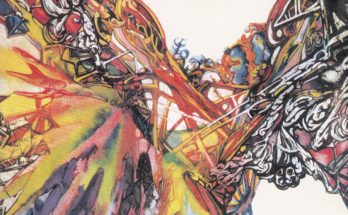By Rodrigo Díaz, José María Moreno, and Bernardo Moreno
Today´s forced migrants exceed 100 million. Is forced migration the product of past conquests perpetrated by world powers in the Middle East, Africa, India, America, and so many other places? Obstructing the natural order, raping, pillaging, enslaving, and killing anyone who stood in their way, in addition to imposing their way of empires and colonies was purposeful, and intended only to enrich themselves and make that king or queen ever more powerful. It is unbelievable! It is no surprise that now so many people that come from those ex-colonies search for a less precarious life in the very country that took advantage of them.
There are many reasons why a person would migrate: the sick mind of power-hungry politicians and military men who employ the full strength of the state to persecute and kill anyone who fought on the other side; Franco´s persecution of all surviving republicans after the Spanish Civil War; the constant siege of Israeli forces hunting Palestinians, illegally appropriating land, leaving so many without a home;, or locking them away in concentration camps and prisons, persecuted for only seeking to defend themselves and their land.
People who are forced to migrate and are witness to the normalization of this monstrous process perpetrated by those who, cynically and for example, condemn Russia— not without blame and blood on its hands—but justify Israel through devious arguments. Are forced migrations the consequence of power disputes of a few deranged individuals or are they simply the collateral result of a broken system? Here are three recommendations to try to fathom this nefarious topic.
“Desierto,” Jonás Cuarón, 2015
Moved by the hope of a brighter future, or by the yearning to be reunited with family members that have been taken away in unethical deportations—as in the case of the protagonist of this film—a group of illegal aliens, a term that in itself illustrates the dehumanizing nature of borders, migrates from Mexico to the USA and marches through a relentless desert that, as this thriller unfolds, becomes a ruthless and silent character, overwhelming and infinite. Cuarón, son of the famous director of “Gravity” (2013), released this film in the eve of Trump’s rise to power, a fact that earned the film a motley set of critiques. However, it cannot be denied that the plot keeps the spectator at the edge of the seat, creating a tension that synchs in perfectly with the sound of the wind that feels warm and suffocating, that envelops our characters as they are continually pursued by an insane border vigilante and his shepherd dog, aboard a pickup truck that, to top it all off, waves a Confederate flag. We could summarize this film as an extenuating hunt that does not rely on surprises but rather on an inevitable tension.
“La Guerra Perdida,” Jordi Soler, 2012
“Sometimes decisions are made, and without anyone realizing it, a land mine explodes that will continue exploding for several generations.” Such is the premise with which Jordi Soler opens up this trilogy, one of the most significant works of literature that can help understand the exodus forced upon the losers of the Spanish Civil War, and in particular, of Arcadi and Oriol, the main characters of this work. The author reconstructs Arcadi´s exile—as an ex-republican soldier—that takes him from a Barcelona sieged by Franco’s forces, that will eventually lead him to a lost jungle in Veracruz. Along with other lost souls from the Civil War, they build La Portuguesa, a coffee plantation where later the author would be born and that is the setting for the most part of these books. The author weaves various eccentric stories like these: a Mexican ambassador that gives shelter to President Azaña; the adventures of the best baseball team in Cuba alongside a partying brunette; the destiny of an African tribe from the Nile; the revelation of a conspiracy to murder Franco; Johan Cruyff and his relationship with the thousands of talismans of a chamana; Chango´s rise to power as the most despotic of mayors; the trafficking of barbiturates and some Chinese men; an elephant lost in recondite lands; a giant in the Pyrenees that leaves us wondering about the meaning of life; and finally, a hero that would have fared well had he died sooner. An intricate story that reveals the unsuspected effects of forced migrations.
“Cold Fact,” Rodríguez, 1970
The story of Sixto Diaz Rodriguez, known professionally as Rodriguez, an American singer-songwriter from Detroit, Michigan has gone around the world, no doubt in great part thanks to the documentary about his life that won an Oscar in 2012. It is another great example of the unexpected results that can come about through forced and sorrowful migrations—in this case, the migration to the USA of his parents who went there in search of the American dream back when this was not even a concept. Many have compared Rodriguez´s music and lyrics to those of Bob Dylan, his contemporary, but always confirming that the former is lyrically superior. His music is now well known thanks to the fame he earned in countries that were irrelevant for the world music scene at the second half of the twentieth century. Without him even being aware of it, he became a renowned artist in South Africa back in the 90s. It is a fortuitous present for universal music that his lyrics and songs are still influential and a source of inspiration for so many misfits, freaks, loners, and truth-seekers always searching for the truth that only music can reveal. This album, the first one signed under his now well-known name, is an advanced swan song. Not long after, he would give up music, only to discover himself decades later as an improbable idol: “I wonder how many times you´ve been had, and I wonder how many dreams have gone bad.”




